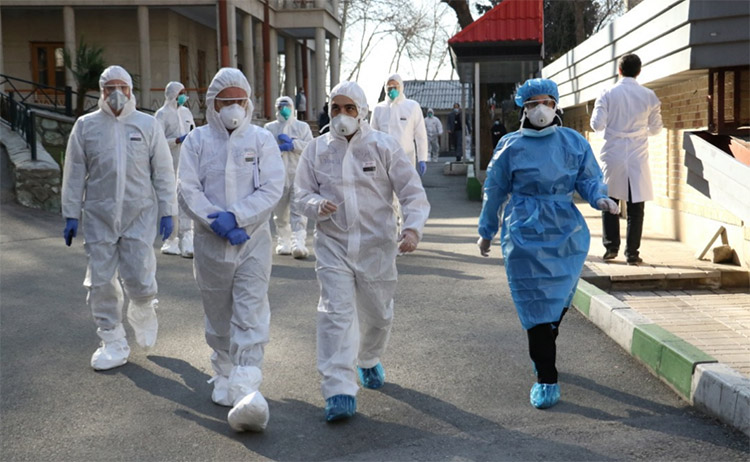Coronavirus: NSO Offers Covid-19 Tracking Software

Surveillance specialist NSO offers Western governments software that uses mobile phone data to monitor and predict the spread of coronavirus
Surveillance specialist NSO Group claims it in talks with governments around the world about using its tracking software, which is already being tested by some nation states.
The NSO tracking software reportedly uses mobile phone data to monitor and predict the spread of Coronavirus, raising obvious privacy concerns for some.
It comes as the Israel-based firm finds itself in a legal bind with WhatsApp, after Facebook sued NSO last October and alleged it was behind the cyberattack in 2019 that infected devices with advanced surveillance hacks (reportedly from NSO) in May 2019.

Tracking software
NSO has denied the allegation, but Facebook won the first round of its legal battle in early March, after the surveillance software maker failed to show up in a US court.
NSO Group is in the business of developing surveillance tools that are intended for use by governments and law enforcement agencies.
It has demonstrated its Coronavirus tracking software to both Sky and the BBC, and is reportedly actively pitching it to Western governments.
“According to the demonstration shown to Sky News, the platform will be hosted on government customers’ own systems, meaning NSO would not have access to any data being uploaded to it – which is provided by the governments themselves,” Sky News reported.
Governance of the data and the decision on how granular that data would be would remain in the hands of the customers, it said.
Individuals are reportedly featured on the platform using a random identifier.
Their location movements are timestamped, offering the authorities the ability to trace where Covid-19 infected people have been following a diagnosis, and potentially to check who may have been infected by them.
“The software is here to solve a global pandemic,” a spokesman told the BBC. “This is about giving governments the ability to understand the situation they’re facing and make informed decisions. It’s a really powerful piece of software.”
Privacy worries
But there are big privacy implications.
John Scott Railton, of the Toronto-based privacy watchdog Citizen Lab, told the BBC that governments would be foolish to use the system.
“The last thing that we need is a secretive company claiming to solve a pandemic while refusing to say who its clients are,” he reportedly said.
The demonstration of the software to Sky and BBC started with a “heat map of Israel”, which showed hotspots where there were a high number of cases of the virus.
The software can apparently zoom into the map, which then maps individual phones of infected people. Details were also shown of other phones the infected people had encountered are also shown, along with relevant times and locations.
NSO claims its software would be able to predict where the next cluster of cases was likely to be; where to locate the most ventilators in hospitals most; and potentially allow certain regions of a country to come out of quarantine.
NSO claimed a number of governments are piloting the system, but would not reveal their identity or whether any of them had started using it in the field.
Location data
Last month it was reported that European mobile operators were sharing location data with health authorities in Italy, Germany and Austria, in an effort to fight the spread of the pandemic.
Operators apparently shared data to show whether people were complying with local curbs on movement.
Days later, the British government reportedly approached at least one mobile operator regarding location data, to see if citizens were practising social isolation.
The government was said to be in talks with BT (which owns EE) over revealing mobile data to see if Brits are social distancing.
Mobile location data has been used heavily in South Korea in its fight against Coronavirus, as well as in other countries such as Israel.
Can you protect your privacy online? Take our quiz!